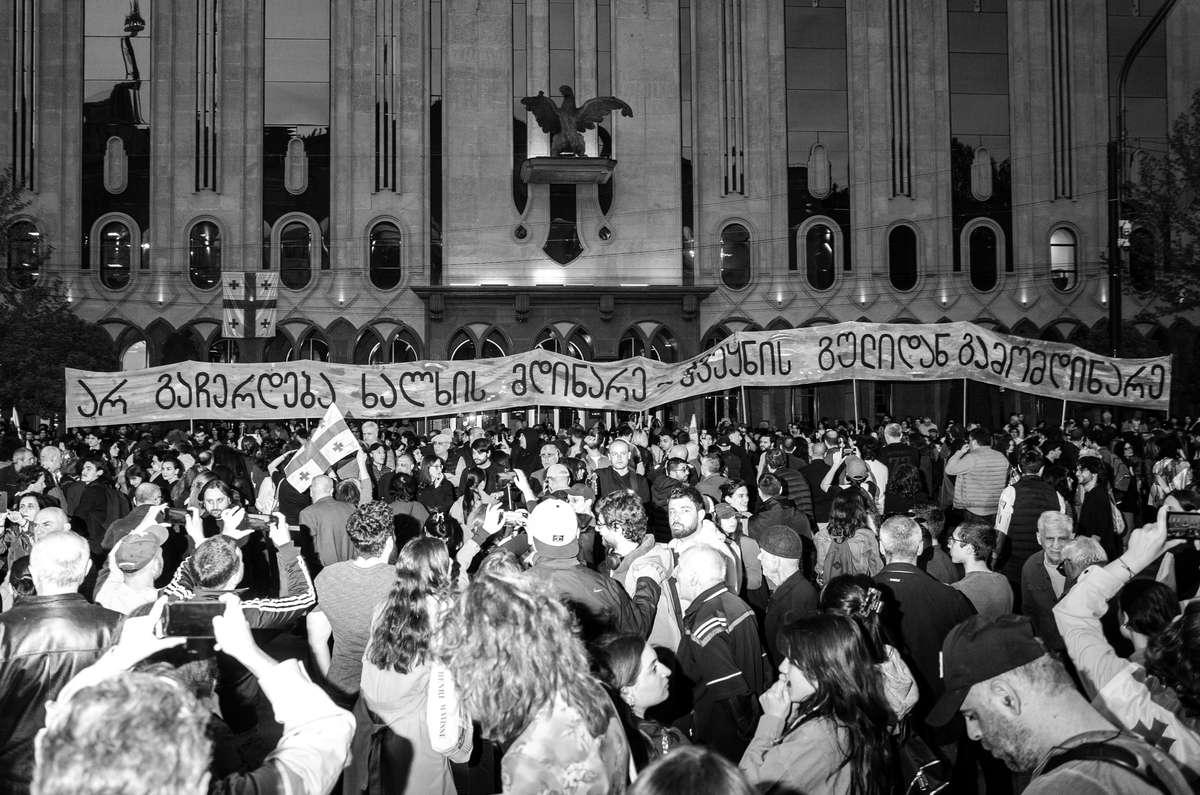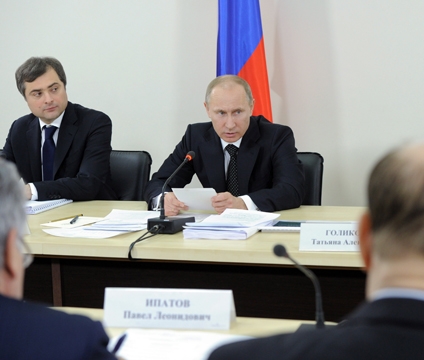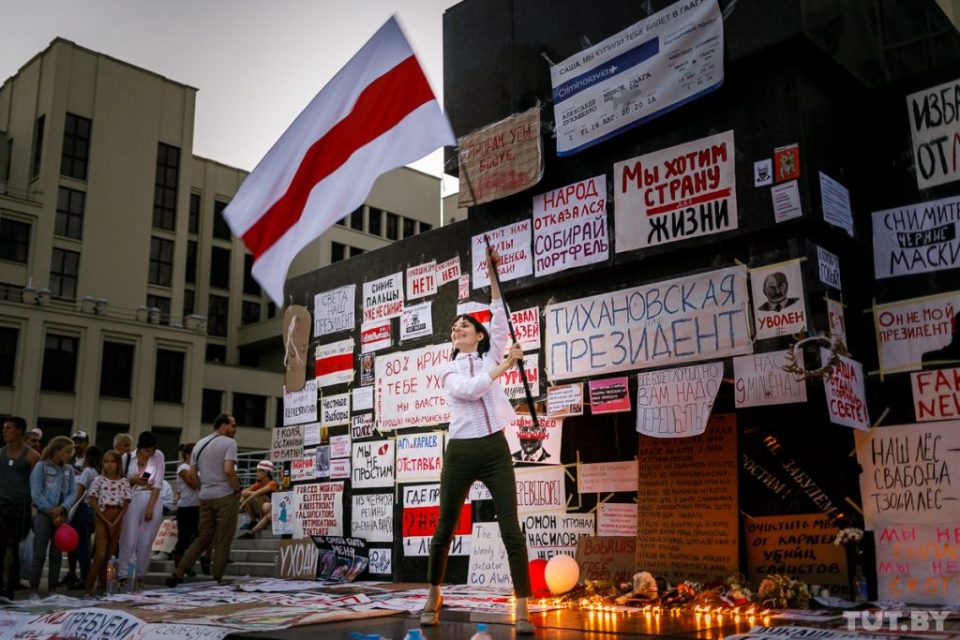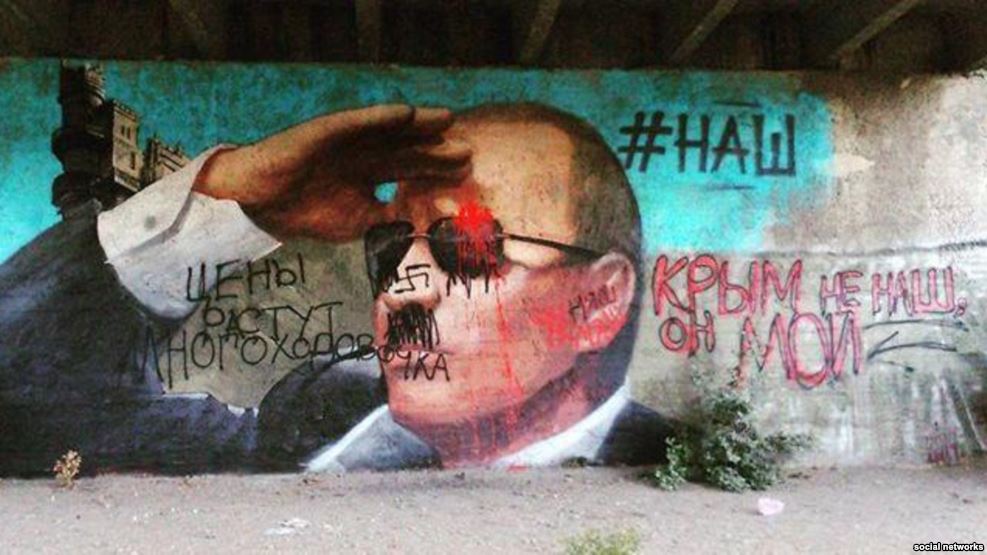In recent weeks, a significant protest movement has gained momentum in Georgia, showing no signs of abating, with its apex perhaps yet to be reached. The catalyst for these protests is the contentious "Foreign Agents law,” reintroduced by the Georgian Dream on 7 April 2024.
The legislation, which mandates that non-governmental organizations and media register as channels for foreign interests and annually disclose comprehensive financial statements, is criticized for being copied from an analogous Russian law, which has allowed to brand civil society organizations, many of whom receive Western funding, as enemies of the nation and essentially squash them.
The Georgian Dream's first introduction of the law in March 2023 sparked an immediate and intense public response. A week-long standoff between demonstrators and law enforcement in the capital's streets led the ruling party to rescind the law due to concerns over depleting police resources and pledge not to reintroduce it.
From Rose Revolution to anti-Western tirades
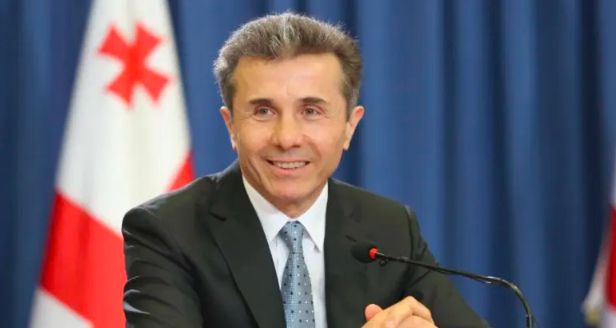
Bidzina Ivanishvili, who amassed his fortune in the 1990s in Russia, saw his party Georgian Dream rise to power in 2012, marking the first electoral government transition in Georgia's history.
The enigmatic leader of the Georgian Dream was a well-connected member of Russian oligarchic circles. He not only made his millions in Russia but was a highly-positioned figure, involved in the most lucrative sectors of Russia's economy like banking and industry. At one point, he even financed the campaign of maverick Russian nationalist politician Aleksandr Lebed, revealing the scale of his influence and connections in Russia.
Among Ivanishvili's pre-election promises in Georgia was the continuation of the country's Euro-Atlantic integration process, as well as the normalization of relations with Russia, which soured after Russia’s 2008 war against Georgia and occupation of 20% of the country.
Although Bidzina Ivanishvili formally held the position of the country's leading figure only once, from 2012 to 2013, the enigmatic founder of the Georgian Dream is Georgia’s richest man. He is widely regarded as the most influential individual and de facto ruler of the nation for his control over the ruling party and main state decisions.
Georgia’s path toward Eurointegration started decades ago. After its seminal Rose Revolution in 2003, President Mikheil Saakashvili made the official steps to anchor Georgia in its pro-European course, supported by most of the population.
When the Georgian Dream came to power in 2013, it had no choice but to continue the pro-European agenda. However, it became more inert in pursuing Eurointegration, and NATO membership had visibly slid down the government’s list of priorities.
All this time, trade volumes with Russia rose, positioning Russia as one of Georgia's principal trading partners.
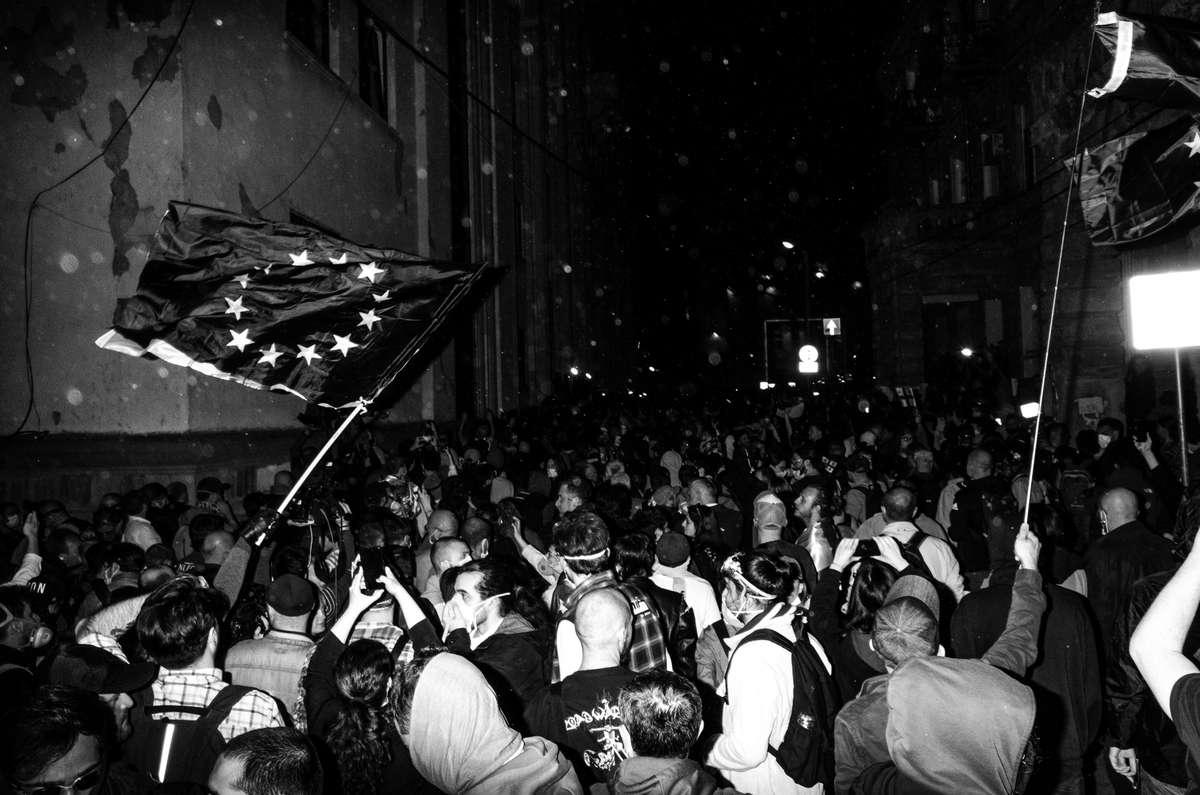
In the early days of the conflict, senior officials of the Georgian government refused to align with the sanctions imposed on Russia by Western powers. Subsequently, relations with war-torn Ukraine experienced a marked deterioration.
Moreover, when addressing the causes of the conflict in international forums, Georgian leaders echoed narratives reminiscent of Russian propaganda, repeating Russia’s false claims that its invasion of Ukraine was motivated by the latter's aspiration to join NATO.
Ivanishvili and the "Global War Party" conspiracy
Government officials asserted that certain entities aimed to establish a second front against Russia in Georgia, though they refrained from specifying the countries or organizations involved.
According to the Georgian government, the so-called "Global War Party" sought to embroil Georgia in a war with Russia.
Against a backdrop of escalating rhetoric hostile to the West, in June 2022, the European Commission opted not to grant Georgia the status of a candidate for EU membership, as opposed to Ukraine and Moldova.
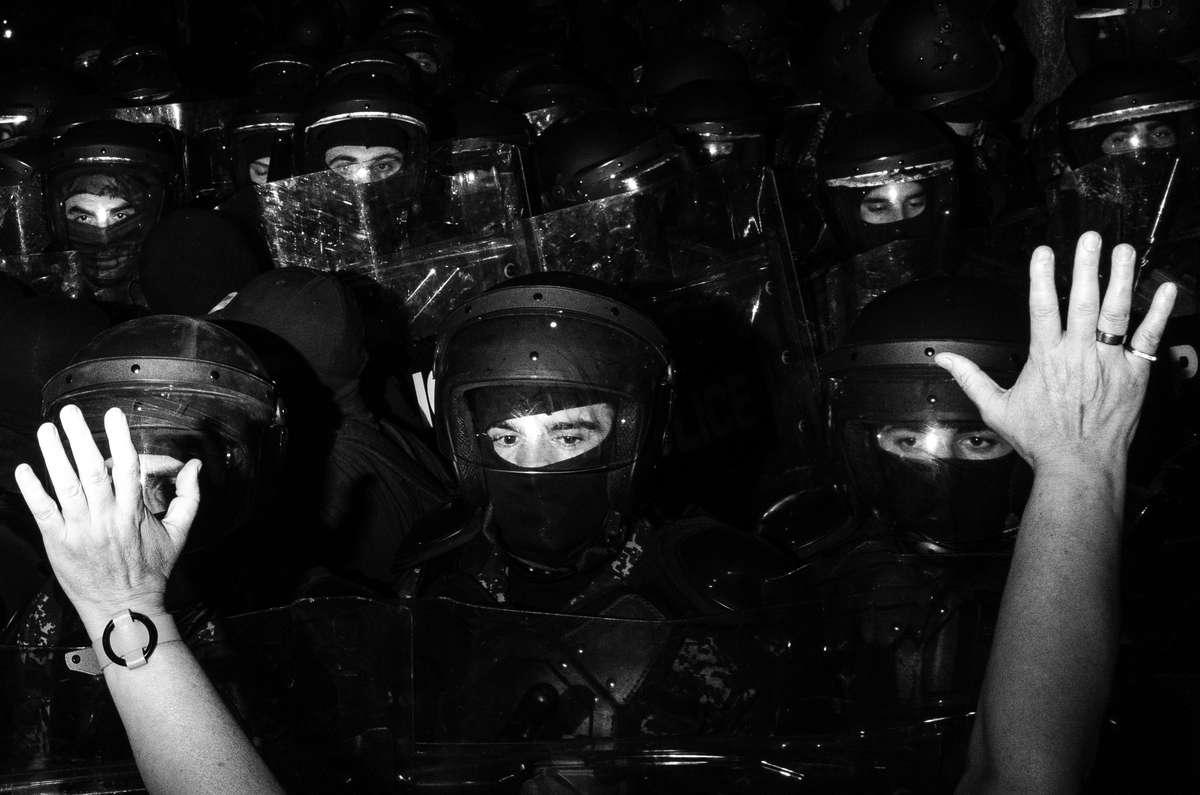
The European Commission presented Georgia with a 12-point list of recommendations outlining various reforms targeting the judiciary and state management within the country. The decision would be revised upon the successful implementation of these reforms.
Government officials and propagandists attributed the European Commission's decision again to the influence of the "Global War Party." According to their narrative, Georgia was punished for thwarting attempts to involve the country in the conflict.
Against a backdrop of anti-Western rhetoric and sharp criticism from high-ranking officials, the hope persisted that the country's Western trajectory remained unchanged. However, despite this, during his visit to Georgia in the fall, the head of European diplomacy, Joseph Borrell, remarked that the country had only fulfilled 9 out of the 12 recommendations.
This achievement seemingly bolstered Ivanishvili's confidence, reinforcing his belief that he was steering the nation in the right direction.
Consequently, towards the end of last year, he announced his third foray into politics, this time as honorary chairman of the ruling party. This conviction was further underpinned by polls, which projected a comfortable lead for the ruling party in the upcoming elections.
The electoral support is conditioned by the growth that the Georgian economy experienced over the past two years, partly due to a surge in Russian immigrants and heightened tourism. Additionally, the political landscape has favored Bidzina Ivanishvili, buoyed by both the fragmentation of the opposition and a persistent narrative suggesting that a change in government would precipitate conflict and instability.
Now, his chances for victory have been shaken.
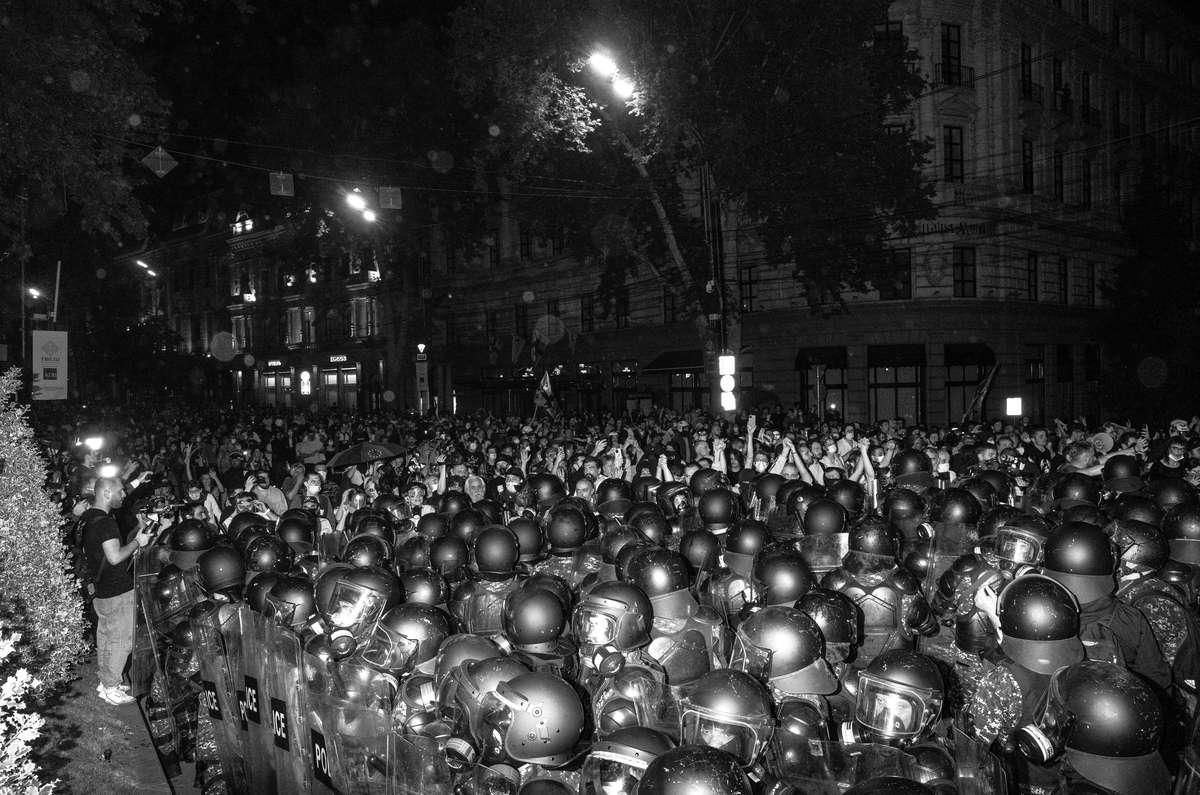
The reintroduction of the “Foreign Agents Law” has sparked numerous questions regarding its timing and other pertinent aspects, even among supporters of the ruling party. Bidzina Ivanishvili himself addressed many of these inquiries during a rally organized by the Georgian Dream party on 29 April.
The crux of his 20-minute address revolved around the concept of the "Global War Party." Ivanishvili sternly cautioned citizens, asserting that today's Georgia is neither akin to Yanukovych's Ukraine nor Shevardnadze's Georgia and that he will not allow the downfall of this regime by popular protests. In a display of self-appraisal, he lauded his own political acumen, stating that he consistently makes the right moves at the right time, seemingly augmenting the accolades bestowed upon him by other speakers.
Protests by Georgia's youngsters take government and opposition by surprise
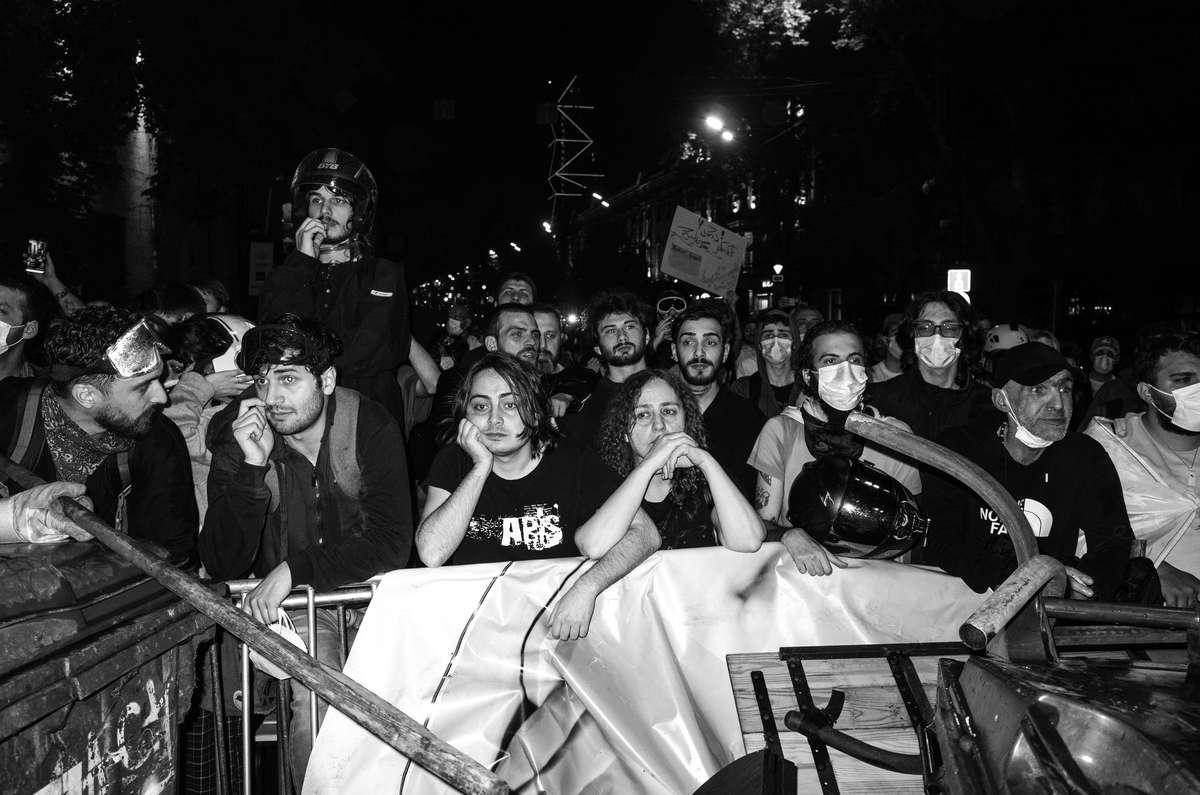
Recent developments in the country suggest a different trajectory. The significant and largely self-organized protests that have unfolded in the capital over the past weeks indicate that the government had not anticipated such a development.
The individuals on the streets, predominantly composed of the younger generation, are operating beyond the purview of the political elite, as the protest movement remains decentralized and autonomous.
Trending Now
The rallies, which have grown into the largest protests in the country's history, highlight the extraordinary nature of the current situation.
Following the adoption of the law on foreign agents in the second reading by the Parliament of Georgia on 1 May, a confrontation ensued between demonstrators and the police in the heart of Tbilisi. Utilizing tear gas, pepper spray, water cannons, and rubber bullets, the police dispersed the rally. Despite the physical violence, subsequent days witnessed even larger demonstrations taking place in Tbilisi.
In recent weeks, a total of 63 individuals were arrested during the rallies. Furthermore, the police resorted to physical assault against the leader of the largest opposition party, Levan Khabeishvili, as well as other politicians.
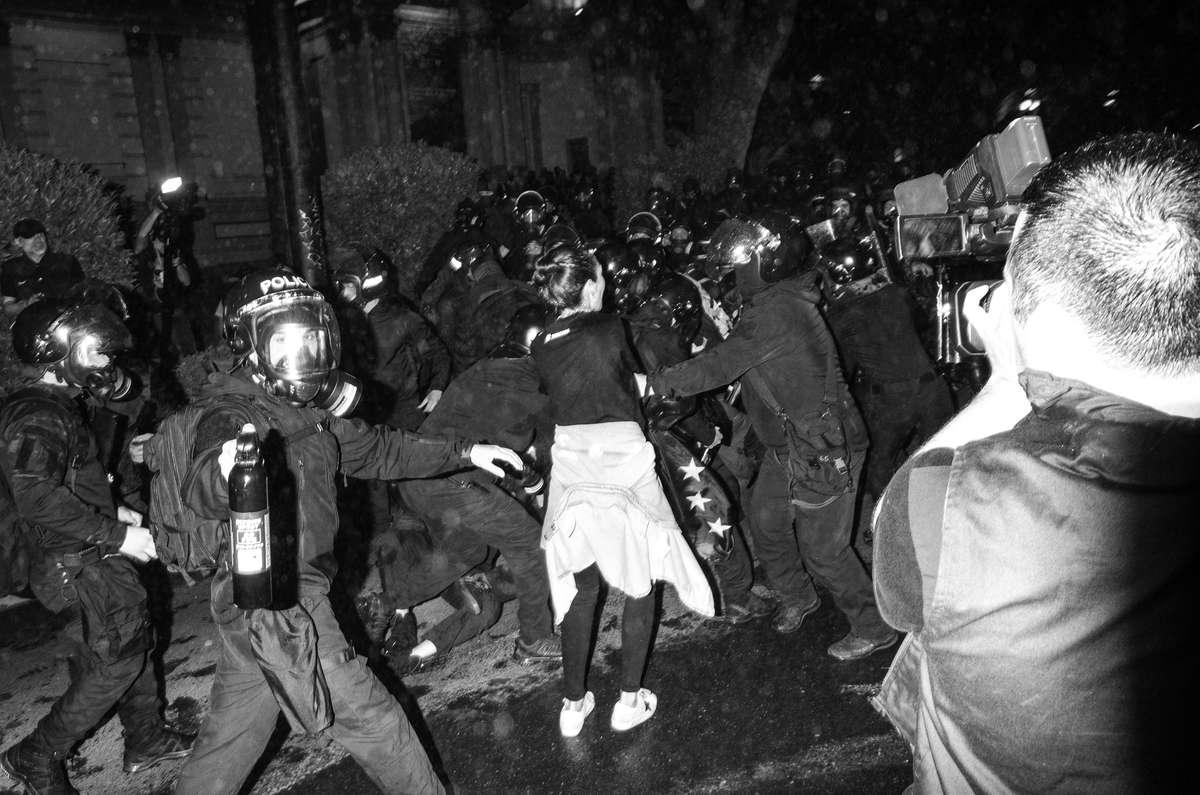
Government dials up violence and repression
The Parliament of Georgia is slated to finalize the adoption of the law in its third and final reading on 17 May, although it can be argued that the law has already been effectively enacted.
Orchestrated attacks have targeted members of various opposition parties and civil activists. In a manner reminiscent of titushky, thugs paid to assault protesters during Ukraine’s 2014 Euromaidan revolution, unidentified individuals physically assaulted oppositional citizens across different locations throughout the day.
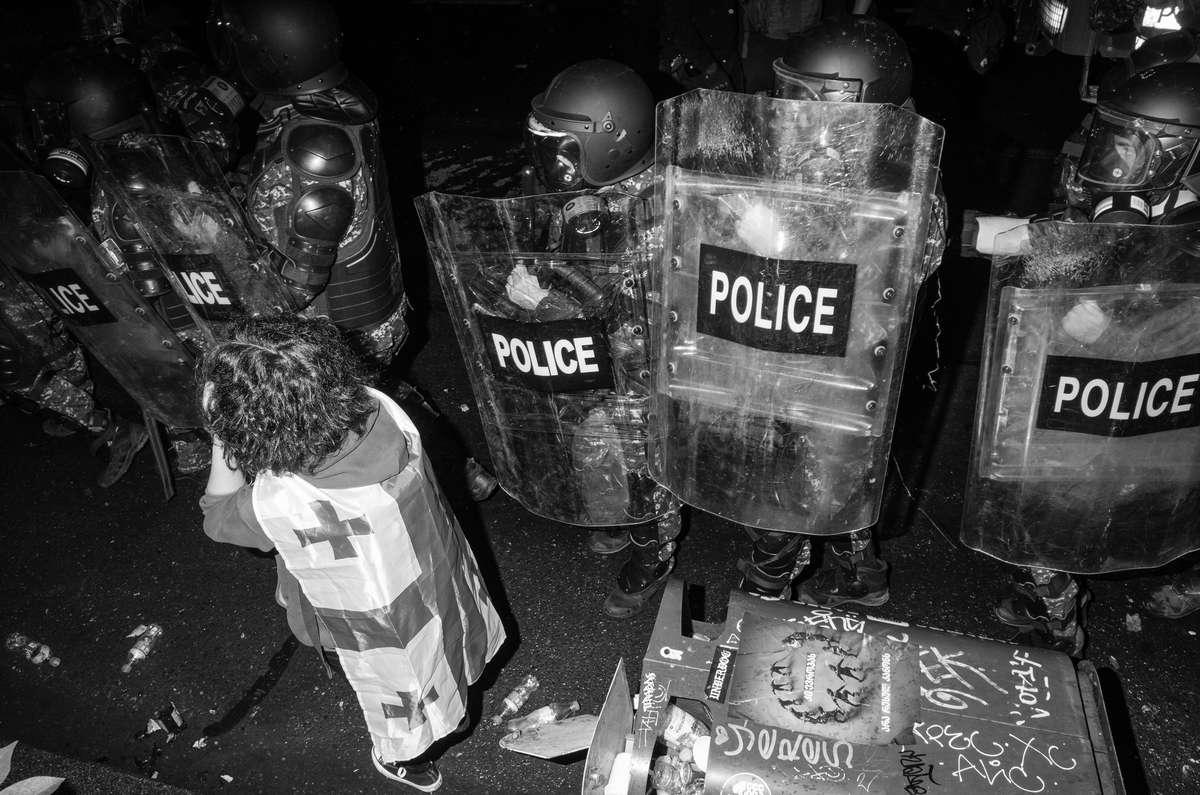
These incidents were preceded by coordinated phone calls originating from numbers in foreign countries. Within a short span of time, hundreds of well-known and active citizens received threatening and insulting calls.
During the briefing held on 8 May, the Ministry of Internal Affairs of Georgia showcased footage of crackdowns on protest rallies in Western countries and announced that the police would adopt a stricter stance if deemed necessary in upcoming rallies.
Simultaneously, the propaganda campaign escalated, with government channels releasing secret recordings of oppositionists and activists within hours.
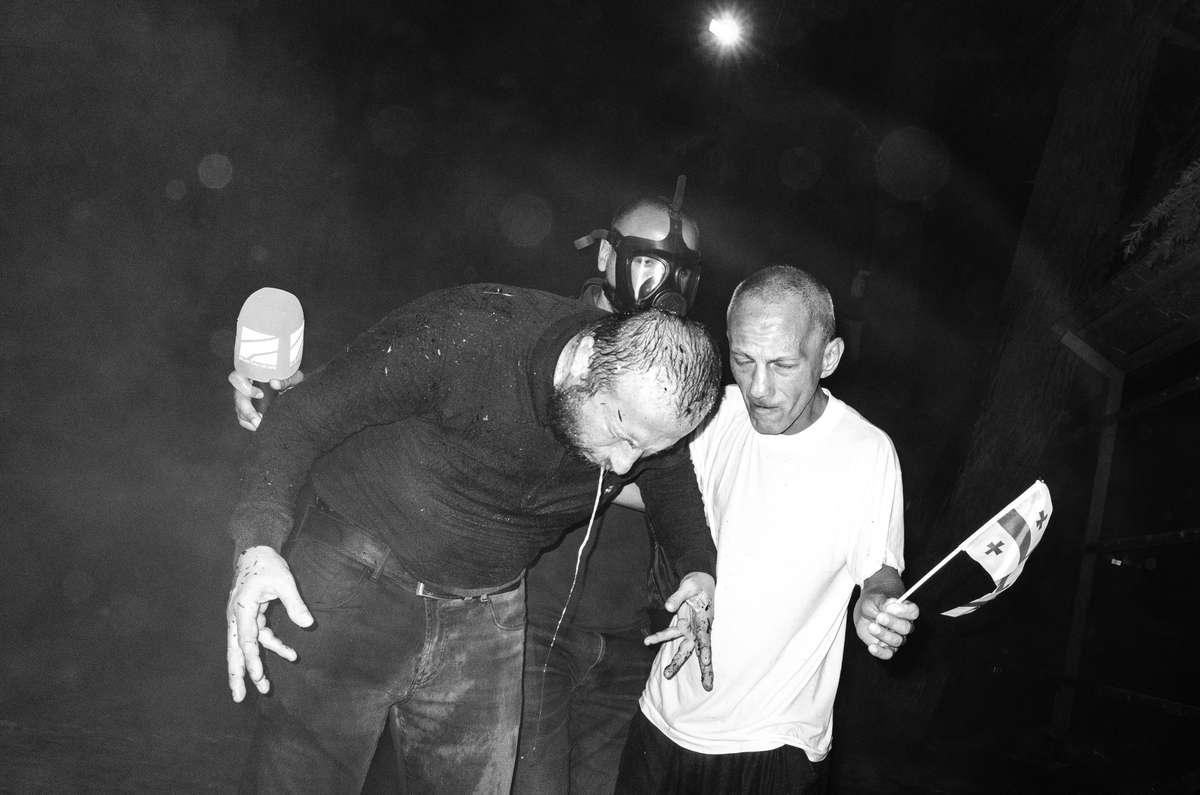
By the morning of 9 May, six individuals had already been arrested on charges of disobeying police orders and damaging state property.
On that very morning, shaming posters emerged on the streets of Tbilisi, strategically positioned near the offices and residences of opposition and civil activists. These posters featured photographs of opposition-aligned individuals accompanied by captions such as "traitors of the country" and "foreign agents," among others.
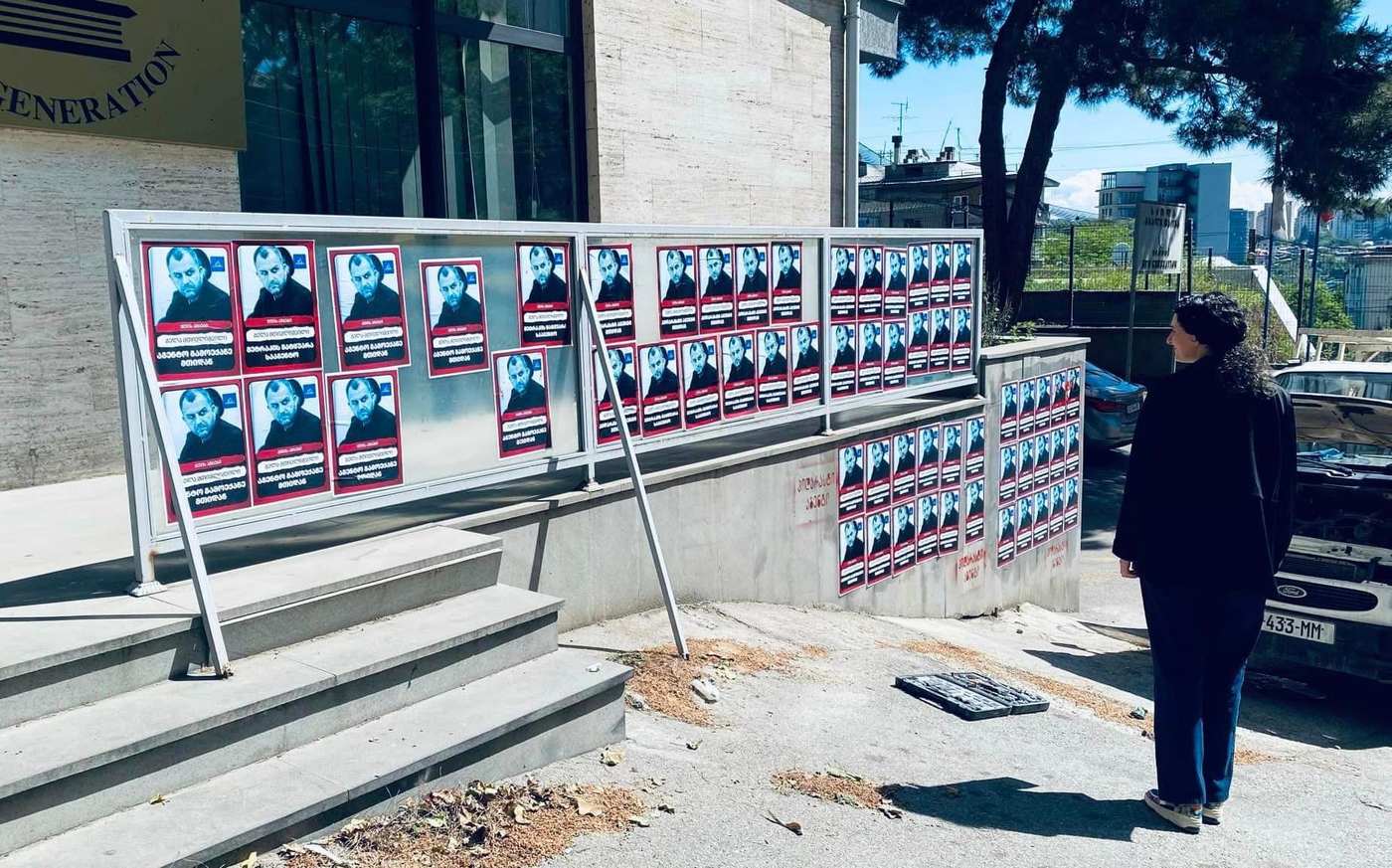
Georgia's relations with West plummet amid crackdown on protesters
Simultaneously, relations between Georgia and the West are deteriorating. On May 2, US Ambassador Robin Dunnigan stated that senior officials from the Georgian government declined an invitation to visit the United States. The stated reason for this decision was the request to rescind the law regarding foreign agents.
At the same time, calls for the imposition of Western sanctions on Ivanishvili and members of parliament are becoming increasingly prevalent.
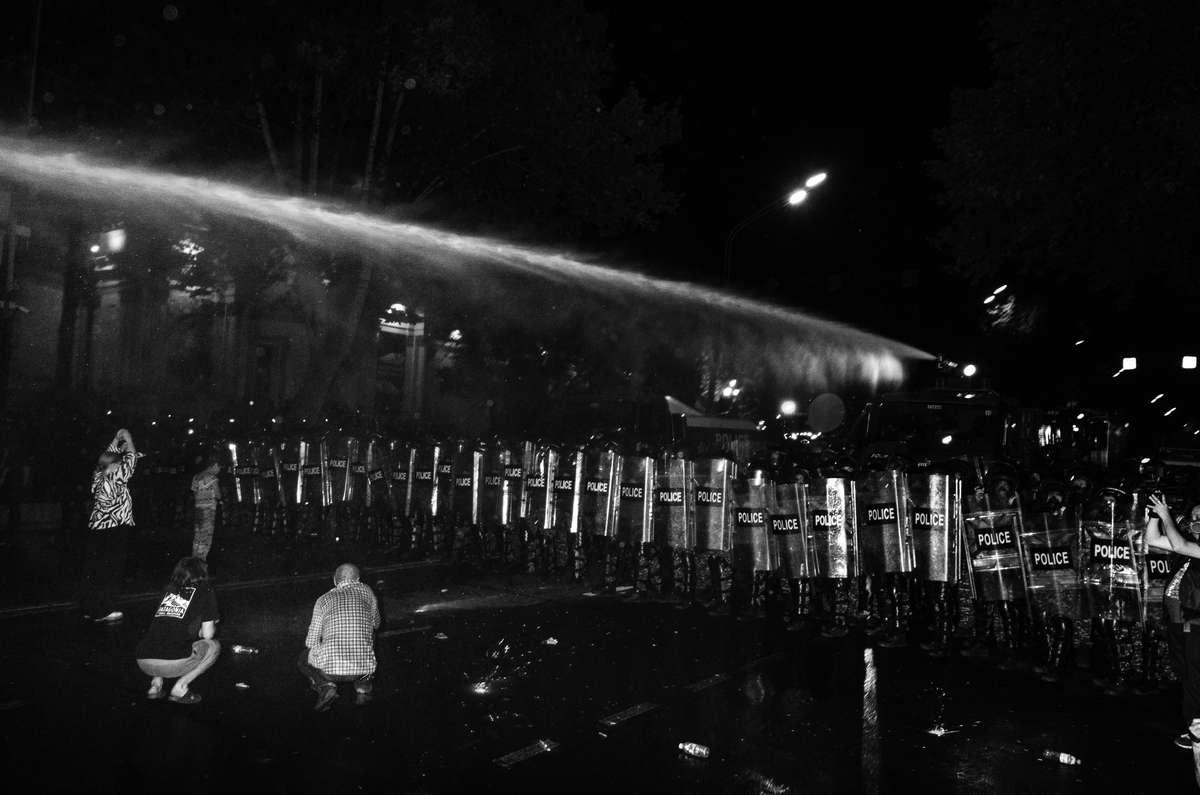
Ivanishvili's and his subordinates' rhetoric, along with their actions, including frequent physical attacks on civil activists and the beating of opposition leaders, leave no doubt that the ruling party has made a firm decision.
Immersed in conspiracy theories, Ivanishvili views the coming months as a pivotal turning point, believing that the West will falter in the ongoing geopolitical conflict.
Consequently, the trajectory of the country's movement has been set. In such a scenario, Ivanishvili perceives the best security guarantee to be the establishment of his own dominion, characterized by subdued resistance and a demoralized society.
The most poignant symbol of the country's current state was the vacant government chairs at the Europe Day event on 9 May. The Georgian government representatives conspicuously abstained from attending the annual event, which is hosted by the EU ambassador and typically draws delegations from European embassies in the country.
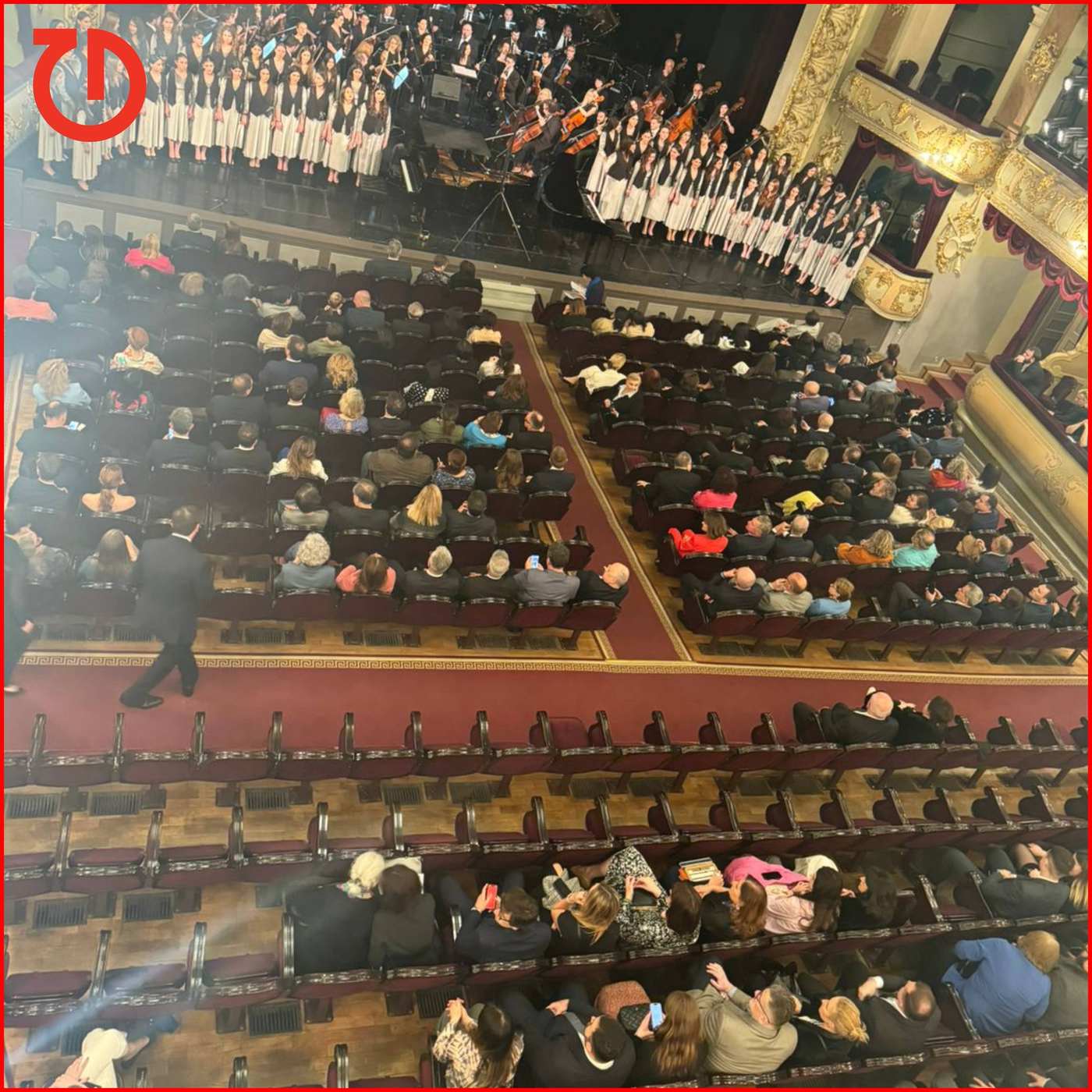
President Salome Zourabichvili's actions starkly contrast those of Georgia’s government representatives.
In recent weeks, the French-born Zurabishvili has launched scathing criticisms against the Georgian Dream, going as far as to label it as the "Russian Dream." It has been revealed that the president intends to veto the proposed law. However, under the Constitution of Georgia, the president's authority is limited, and the ruling party holds a significant majority in Parliament, enabling them to override any presidential veto.
Tensions between Zourabichvili, initially elected with the backing of the Georgian Dream, and the ruling party have escalated significantly over the past two years.
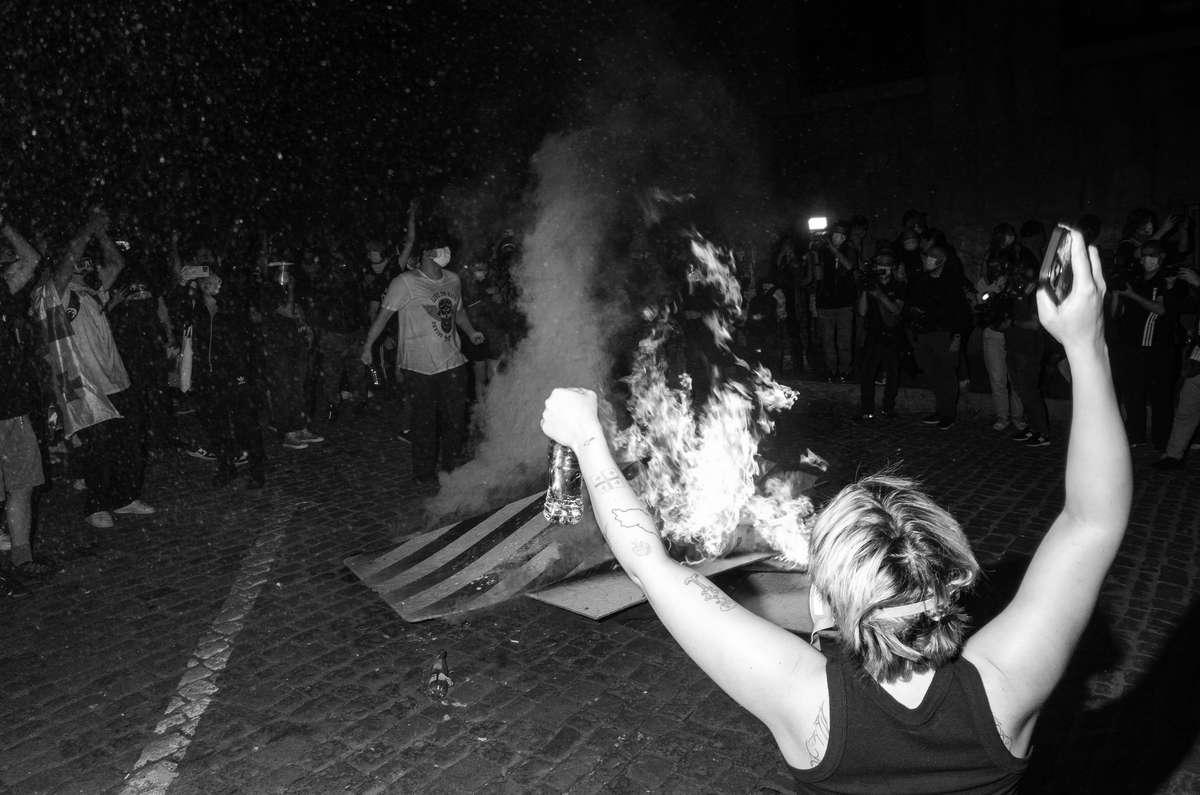
Zourabichvili's frequent visits to European countries in recent months have made her the target of criticism by members of the Georgian Dream and government propaganda. Moreover, the government has initiated legal action against her, filing a lawsuit in the Constitutional Court.
In such a dire situation, society is confronted with an exceedingly unfavorable choice: either to mount physical resistance within the bounds of constitutional rights or to succumb to a violent agenda, sacrificing rights and dignity. The decision Georgian society makes at this critical juncture in the months ahead remains to be seen.

